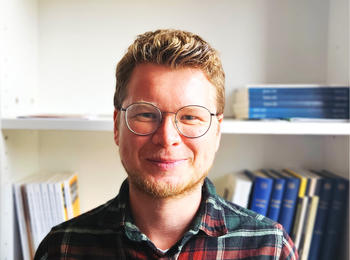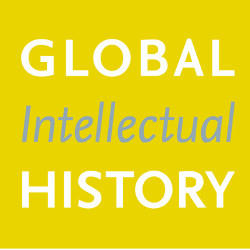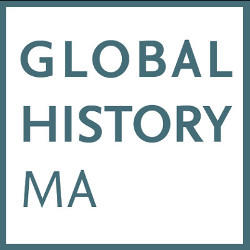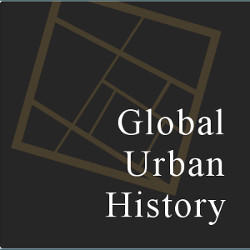Dr. Martin Kristoffer Hamre

Friedrich-Meinecke-Institut
Coordinator Graduate School Global Intellectual History
Neuere Geschichte/Global History
Martin Kristoffer Hamre is a research associate and lecturer in history at the Freie Universität Berlin and currently coordinator of the Graduate School Global Intellectual History. His research interests include the history of European fascism and the far right, the history of internationalism and Europeanization, and the history of German reunification and transformation.
In 2024-2025, he worked as a postdoctoral fellow at the LUCK Lund Centre for the History of Knowledge at the Department of History, Lund University. He completed the Graduate School of Global Intellectual History at the Freie Universität Berlin, where he received his PhD (Dr. phil) in 2024. His dissertation analyzed "Notions and Activities of Fascist Internationalism in the 1930s", supervised by Margrit Pernau and Sebastian Conrad. During his doctoral studies, he participated in the Younger Fellow Visiting Program at C-REX, Center for Research on Extremism at the University of Oslo and was awarded a post-graduate scholarship at the German Historical Institute London. Prior to joining the FMI, he worked as a project assistant at the Federal Chancellor Willy Brandt Foundation and completed an internship at the German Historical Institute in Washington DC.
Martin Hamre is a graduate of the international MA program in European History, a joint degree with study semesters at the Humboldt University in Berlin, the University of Vienna, and King's College London. He holds a BA in History and Philosophy/Ethics from the Humboldt University in Berlin, including an exchange at the University of Bergen.
Summer Semester 2024
European fascism in the context of global crises and transformations
An alternative, radical right-wing Europe? A history of ideas of fascism and neo-fascism, 1923-2023, co-taught with Christian Jacobs
Summer Semester 2022
Right-wing radicalism in Europe after the Second World War, co-taught with Christian Jacobs
In his first monograph monograph, Fascists of the World, Unite? A History of Fascist Internationalism in the 1930s (De Gruyter), Martin Hamre analyzes the transnational and comparative history of fascist internationalism in Europe in the 1930s. His research explores ideas, legitimation strategies, and activities of fascist movements and regimes from various countries regarding the tension between nationalism and internationalism. He analyzes four organizations founded and financed by the two fascist regimes in Italy and Germany in intersection with seven fascist movements from Denmark, Norway, Sweden, Britain, Ireland, and Switzerland.
In his new research project, Hamre studies the Europeanization and transformation of the Humboldt University of Berlin from the 1980s to the 1990s in the context of the end of the Cold War, German reunification, and European integration. The project is associated with the research project ‘The Europeanisation of the Universities: Transforming Knowledge Institutions from within, c.1985–2010’, based at the LUCK Lund Centre for the History of Knowledge.
Monograph
Fascists of the World, Unite? A History of Fascist Internationalism in the 1930s (Berlin: De Gruyter, 2025), https://www.degruyterbrill.com/document/doi/10.1515/9783111469799/html
Peer-reviewed journal articles
Fascist Regionalism: Nordic Cooperation among Scandinavian Fascist Parties in the 1930s, Scandinavian Journal of History (2025): pp. 1–25, https://doi.org/10.1080/03468755.2025.2544533
‘Nationalists of All Countries, Unite!’: Hans Keller and Nazi Internationalism in the 1930s, Contemporary European History 33, no. 2 (2024): pp. 477–496, https://doi.org/10.1017/S0960777322000455
Co-written with Sabrina Proschmann and Frederik Forrai Ørskov, Editorial Introduction: Approaches to Transnational and International Fascism: Actors, Networks and Ideas 1919-1945, Fascism. Journal of Comparative Fascist Studies 13, no. 1 (2024), pp. 1-12, https://doi.org/10.1163/22116257-bja10072
‘Organic Unity through a New Order’: Ideas of Corporatism and the Norwegian Nasjonal Samling, Laboratoire Italien 32 (2024), https://doi.org/10.4000/122lf
Co-written with Celestine S. Kunkeler, Conceptions and Practices of International Fascism in Norway, Sweden and the Netherlands, 1930–40, Journal of Contemporary History 57, no. 1 (2022): pp. 45–67, https://doi.org/10.1177/00220094211031992
Norwegian Fascism in a Transnational Perspective: The Influence of German National Socialism and Italian Fascism on the Nasjonal Samling, 1933-1936, Fascism. Journal of Comparative Fascist Studies 8, no. 1 (2019): pp. 36–60, https://doi.org/10.1163/22116257-00801003
Edited special issue
Together with Sabrina Proschmann and Frederik Forrai Ørskov, Approaches to Transnational and International Fascism: Actors, Networks, and Ideas, 1919–1945, Fascism. Journal of Comparative Fascist Studies 13, no. 1 (2024), pp. 1–97
Book chapters
Die besondere Rolle der Faschismusforschung in Deutschland: Eine Einleitung des Übersetzers, Roger Griffin, in Faschismus. Eine Einführung in die vergleichende Faschismusforschung (Stuttgart: ibidem, 2020), pp. 9–20
How the Germans became the Huns, in Barbara Metzler et al (Hg.): Von der Reflexion zur Dekonstruktion? Kategorien und Stereotype als Gegenstand junger Forschung (Wien: danzig & unfried, 2017), pp. 81-102
Book reviews
„Book Review. A European Conceptual History of Internationalism“, Contributions to the History of Concepts 17, no. 2 (2022), pp. 128–132
Conference reports
Rethinking Practices and Notions of Fascist Internationalism 1919–1945, H-Soz-Kult (2022), https://www.hsozkult.de/conferencereport/id/fdkn-127923
Deutsche Demokratiegeschichte – Eine Aufgabe der Erinnerungsarbeit H-Soz-Kult (2019), https://www.hsozkult.de/conferencereport/id/tagungsberichte-8212
Conference Report: Cultures of Capitalism in Weimar and Nazi Germany, GHI Bulletin, 63, 2018 (2), pp 91-96




